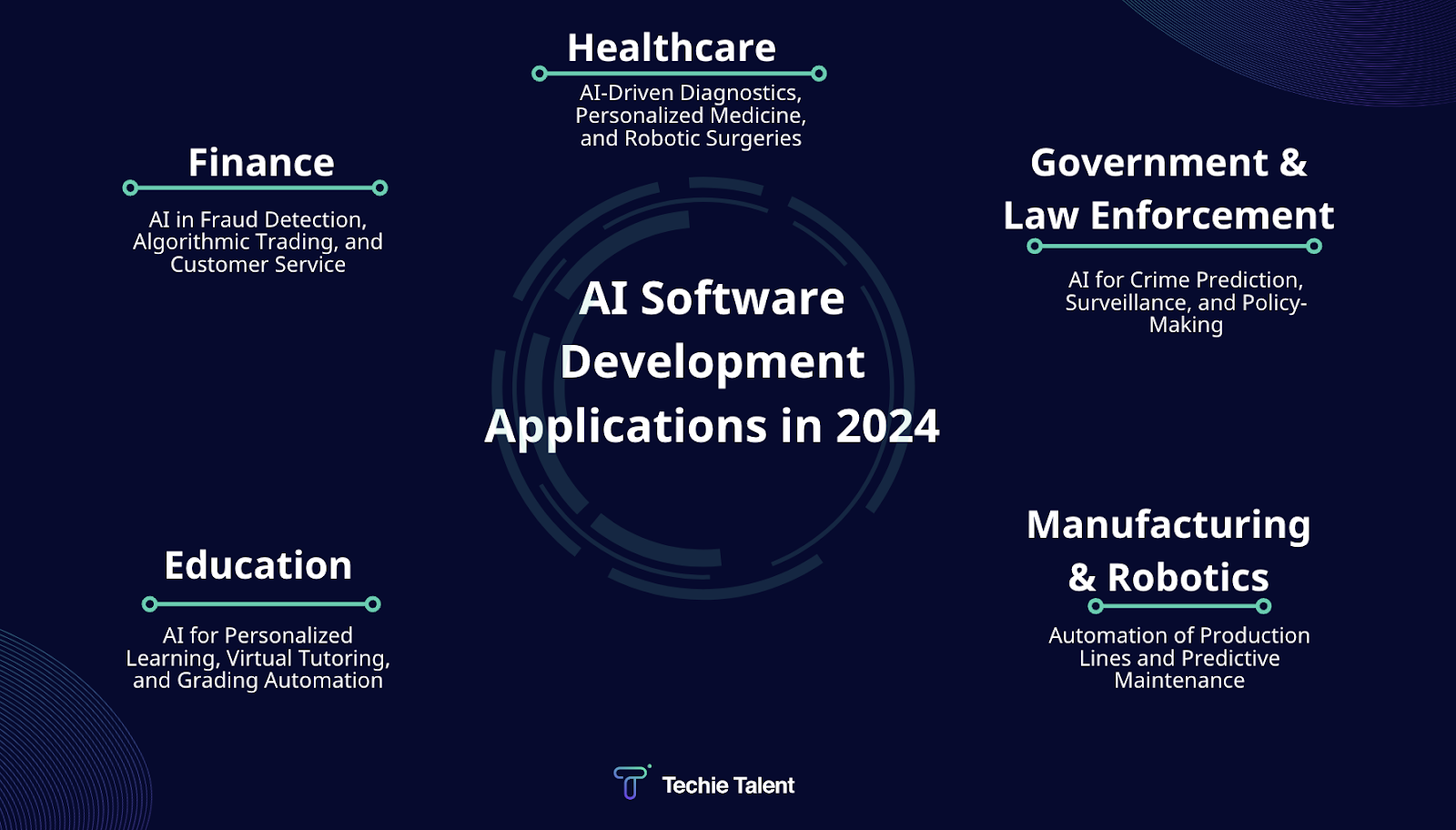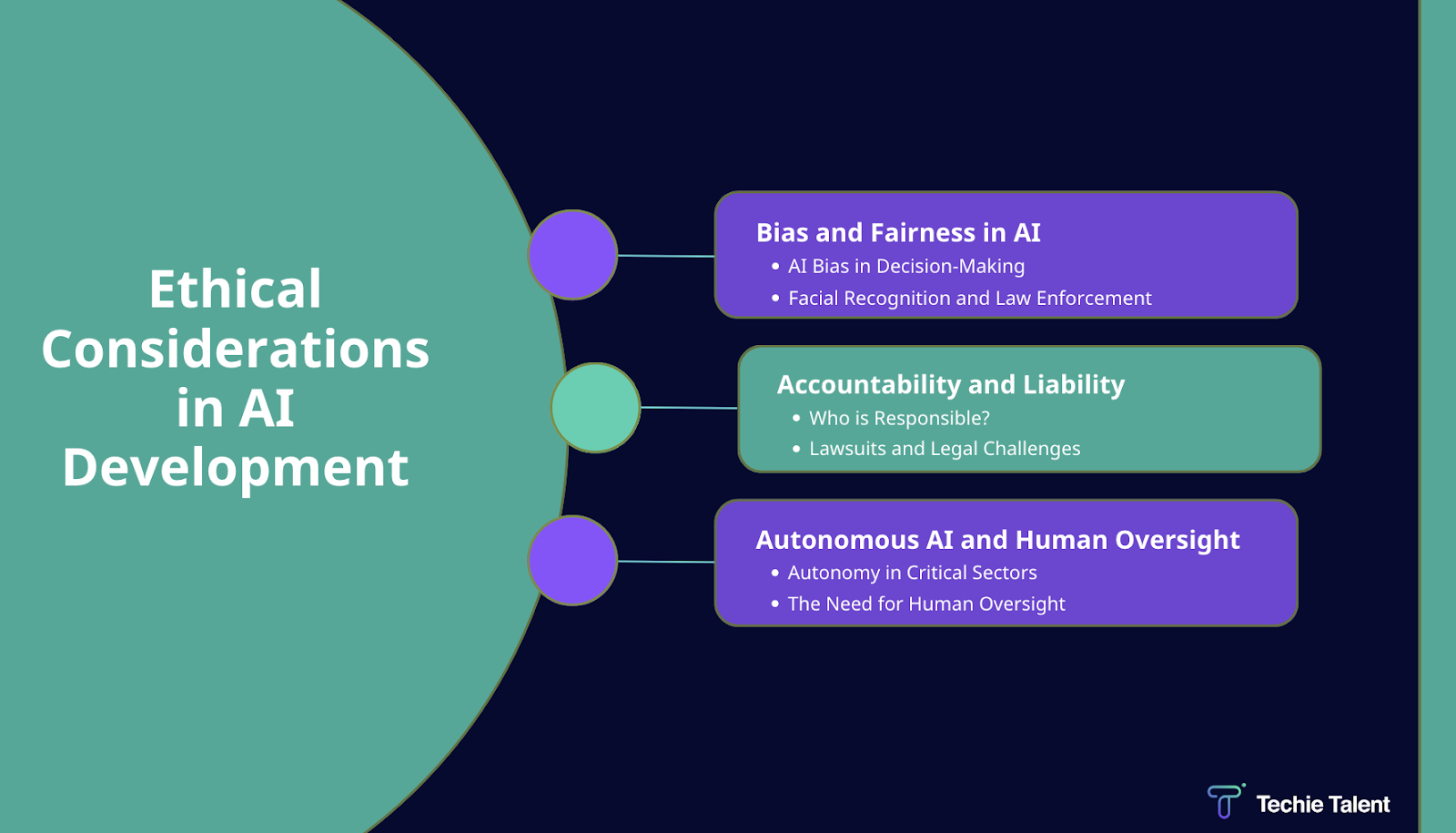Subscribe to Our Insights
Thank you! Your submission has been received!
Oops! Something went wrong while submitting the form.
Our Hubs
Resources
Company
© 2025 Cresteo. All Rights Reserved.
//

From healthcare and finance to manufacturing and education, AI has penetrated nearly every sector, making processes more efficient and, in many cases, more intelligent. What once seemed like science fiction is now a reality, with AI-powered systems enhancing decision-making, improving productivity, and even transforming our daily lives. However, as the capabilities of AI expand, so do the ethical dilemmas associated with its use. The rapid development of AI has raised questions about bias, data privacy, accountability, and the displacement of different human-powered jobs.
Developers, businesses, and governments are increasingly aware that innovation must be balanced with responsibility. Ethical AI is no longer a side discussion; it’s becoming central to how we shape the future of technology. Throughout this article, we will explore the key AI development applications in 2024, the most prominent AI development trends, and the ethical considerations that must be addressed to ensure AI remains a force for good. By discussing both the potential and the risks, we hope to help you navigate AI’s future with greater awareness and purpose.

As AI continues to evolve, its AI development applications are becoming more sophisticated and widespread across various sectors. In 2024, the following industries are leading the adoption of AI technologies:
AI is revolutionizing healthcare by enabling faster, more accurate diagnostics and personalized treatment plans. AI-driven systems can analyze medical images, detect early signs of diseases like cancer, and assist in robotic surgeries with a precision that surpasses human capabilities.
The finance industry is leveraging AI for real-time fraud detection, minimizing losses for both consumers and businesses. Additionally, AI-driven algorithmic trading systems are making financial markets more efficient, executing trades at speeds beyond human capabilities. AI-powered chatbots and virtual assistants are also transforming customer service, providing round-the-clock assistance.
In education, AI is creating personalized learning experiences for students by adapting lessons based on individual learning styles and progress. Virtual tutors powered by AI provide instant feedback and guidance, helping students to learn at their own pace. AI is also being used to automate grading, reducing the burden on educators and allowing them to focus more on student engagement.
In manufacturing, AI is central to automating production processes, enhancing efficiency, and reducing human error. Predictive maintenance powered by AI allows manufacturers to anticipate equipment failures before they occur, minimizing downtime and saving costs.
Governments and law enforcement agencies are increasingly relying on AI for tasks such as crime prediction and surveillance. AI-powered systems analyze vast amounts of data to identify crime hotspots and predict criminal activity, helping law enforcement agencies allocate resources effectively. AI is also being used in policy-making, where it helps analyze trends and outcomes to draft more informed and data-driven policies.

As artificial intelligence (AI) continues to develop rapidly, it brings significant ethical challenges. These concerns, which span bias, privacy, accountability, job displacement, and autonomy, require careful attention from developers, policymakers, and society as a whole. Let’s explore some of the key ethical issues surrounding AI software development in 2024.
As AI systems become more autonomous, questions of accountability and liability arise. When AI systems make decisions or errors, it can be challenging to determine who should be held responsible—the developer, the company using the AI, or the AI itself.
Ethical AI frameworks, like those developed by the European Union's AI Act, aim to ensure that AI systems are built and used responsibly, with clear guidelines on liability and accountability.
As AI continues to integrate into more aspects of daily life, the need for ethical governance and transparent regulations becomes crucial. Governments, international organizations, corporations, and the public are increasingly focused on ensuring AI development aligns with ethical principles to safeguard society.
In 2024, governments and international organizations are actively working to establish comprehensive guidelines for the ethical development and use of AI. These initiatives aim to address concerns over bias, accountability, data privacy, and security.
Global organizations such as the Organization for Economic Cooperation and Development (OECD) and UNESCO have been instrumental in creating AI ethics frameworks. The OECD's AI Principles (launched in 2019) have set a global standard for responsible AI, emphasizing fairness, transparency, and human-centric AI development. UNESCO's Recommendation on the Ethics of AI also provides a framework for ensuring AI benefits all of humanity, with a focus on protecting human rights and promoting inclusivity.
In addition to global governance initiatives, corporations developing AI are increasingly adopting ethical guidelines as part of their responsibility to society. Companies understand that the future of AI depends on earning and maintaining public trust through ethical practices.
As AI becomes more embedded in society, public trust in AI systems is critical for their widespread adoption. However, skepticism about AI's ethical implications has grown, with concerns about job displacement, privacy invasions, and biased decision-making.
The future of ethics of AI development lies in global collaboration, corporate responsibility, and fostering public trust through transparency and accountability. With thoughtful governance and ethical considerations, AI can continue to enhance human progress while minimizing risks, creating a balanced future where technology serves humanity. At TechieTalent, we specialize in AI software development that adheres to the highest ethical standards, integrating transparency, fairness, and security into every solution. Whether you're looking to implement AI in your organization or want to stay ahead of the latest AI development trends, we’re here to guide you through the process. Contact us today to learn how we can help you harness the power of AI responsibly and ethically for your business's future success!